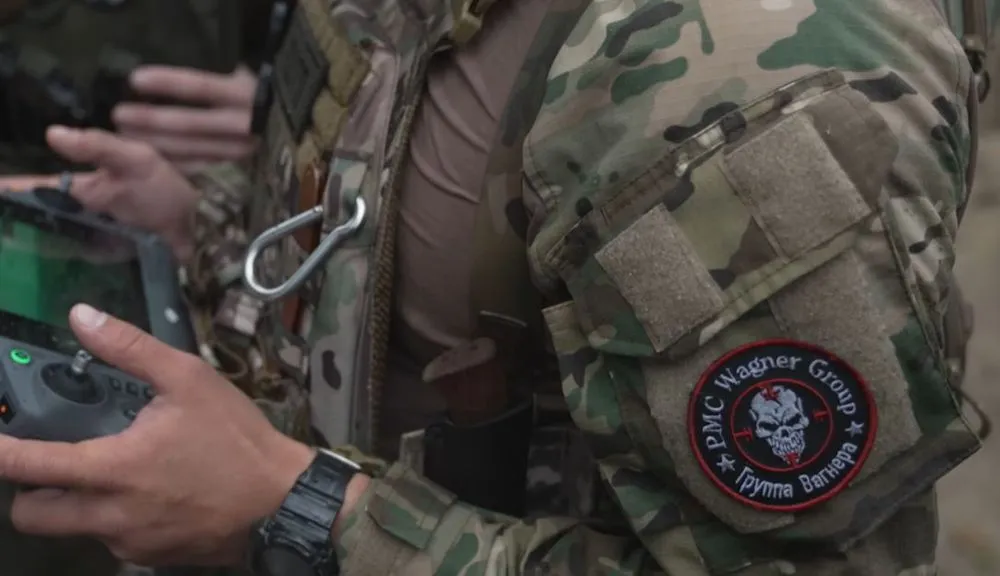British criminals convicted over Wagner Group-linked arson attack on London warehouse
A gang of British criminals were convicted on Tuesday for their roles in a plot directed over the messaging app Telegram by the Wagner Group mercenary organization to conduct arson attacks against targets in London.
The case is the first under Britain’s new National Security Act. It saw the ringleaders of the gang previously plead guilty to the charge of agreeing to accept a material benefit from a foreign intelligence service. Three others were found guilty on Tuesday by a jury at the Old Bailey.
The five men, who are all between the ages of 20 and 23, are: Dylan Earl, Jake Reeves, Nii Kojo Mensah, Jakeem Rose and Ugnius Asmena.
Their attack was described as a “clear example of an organisation linked to the Russian state using ‘proxies’ — in this case British men — to carry out very serious criminal activity in this country on their behalf,” by Commander Dominic Murphy, the head of the Metropolitan Police’s counter-terrorism command.
Police discovered the ringleaders of the plot after a warehouse that was being used to supply humanitarian and satellite equipment to Ukraine was set alight last March in Leyton, East London.
Although the blaze was initially investigated by local police, detectives from the counter-terrorism command took over when officers became aware that another warehouse in Madrid belonging to the same company had also been targeted by an arson attack.
Earl, the main ringleader, was arrested in a carpark in Leicester on April 10. Police said Earl had established contact with the Wagner Group, described as “a private military organisation that acts on behalf of the Russian state, in 2023.”
Earl had previously pleaded guilty to “preparatory conduct” under section 18 of the National Security Act 2023, as well as aggravated arson and drug dealing crimes.
Forensic analysis of Earl’s phone revealed he had been communicating with the Wagner Group over Telegram, with an operator for the mercenary group using accounts nicknamed Privet Bot and Lucky Strike. The handler encouraged him to build relationships with football hooligans, criminal organizations and Irish republican militants, as reported by Reuters.
Wagner and Telegram
Ukrainian law enforcement has warned that Russia’s intelligence services are using messaging apps and online forums to recruit citizens in their own countries for terrorist attacks. Earlier this year the Ukrainian Security Service detained a woman recruited via TikTok to spy on the Ukrainian military.
In London, Earl was responsible for recruiting a group of men for the attacks and to conduct reconnaissance of another two businesses in Mayfair owned by Russian dissident Evgeny Chichvarkin. Earl had proposed the gang could kidnap Chichvarkin and “[exile] him back to Russia to face prison.”
Earl used Telegram to recruit Reeves, who then subsequently involved Kojo Mensah, Rose and Asmena to take part. Reeves subsequently pleaded guilty to agreeing to accept a material benefit from a foreign intelligence service. Reeves and the other three were also convicted of aggravated arson.
The gang used the app to organize their operations, with Earl also being described as receiving instructions and promises of payments from his Wagner Group handler over Telegram.
Mensah, Rose and Asmena travelled to the scene of the arson in a red Kia Picanto on the evening of the attack, and Mensah live-streamed the arson attack over FaceTime to Earl and Reeves. Mensah and Rose poured petrol over the building while Asmena waited in the getaway car.
After arresting him, detectives “extracted 56GB of data from Earl’s phone including, 5702 instant messages, 1244 e-mails, 51528 images, 3629 videos, 183 documents and 4840 social media files; some of the content required translation from Russian.”
The Metropolitan Police Service said their “swift investigation was crucial in preventing Earl and others from carrying out further arson attacks at two premises in Mayfair – evidence of which was found by officers following his arrest.
“Messages recovered from Earl’s phone showed that reconnaissance had already been carried out and discussions were ongoing about the use of explosives to damage buildings,” stated the police.
The act of arson “put members of the public at great risk, and it was only by good fortune nobody was seriously injured or worse. Those involved showed little or no regard for the potential impact of their actions on the UK’s wider security. Seemingly motivated by the promise of money, they were prepared to commit criminal acts on behalf of Russia,” said Murphy.
“I hope these convictions send a strong warning of the very serious consequences of committing offences on behalf of a foreign country.”
Alexander Martin
is the UK Editor for Recorded Future News. He was previously a technology reporter for Sky News and is also a fellow at the European Cyber Conflict Research Initiative.



